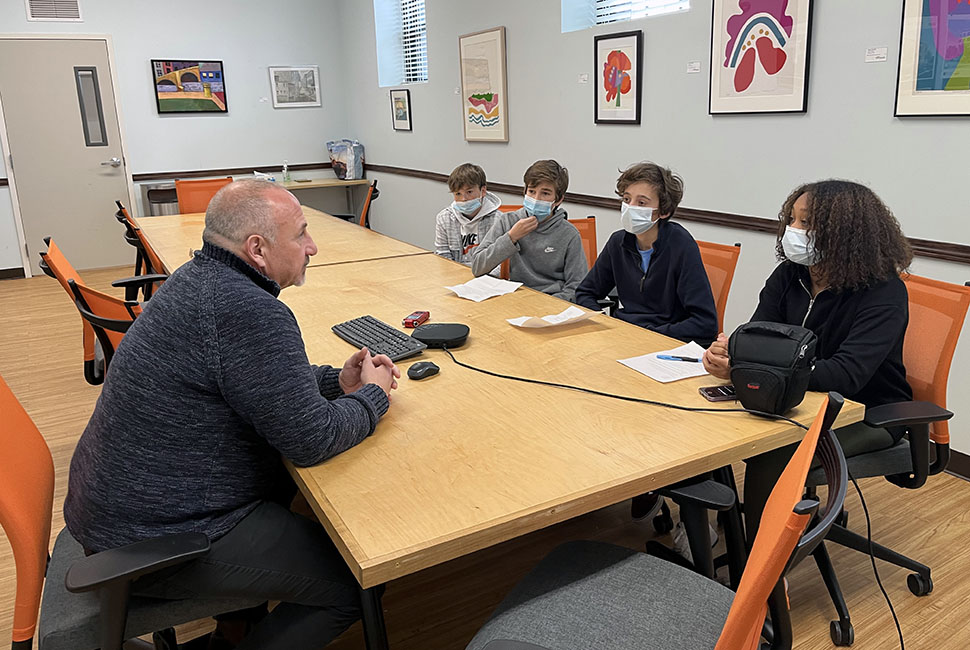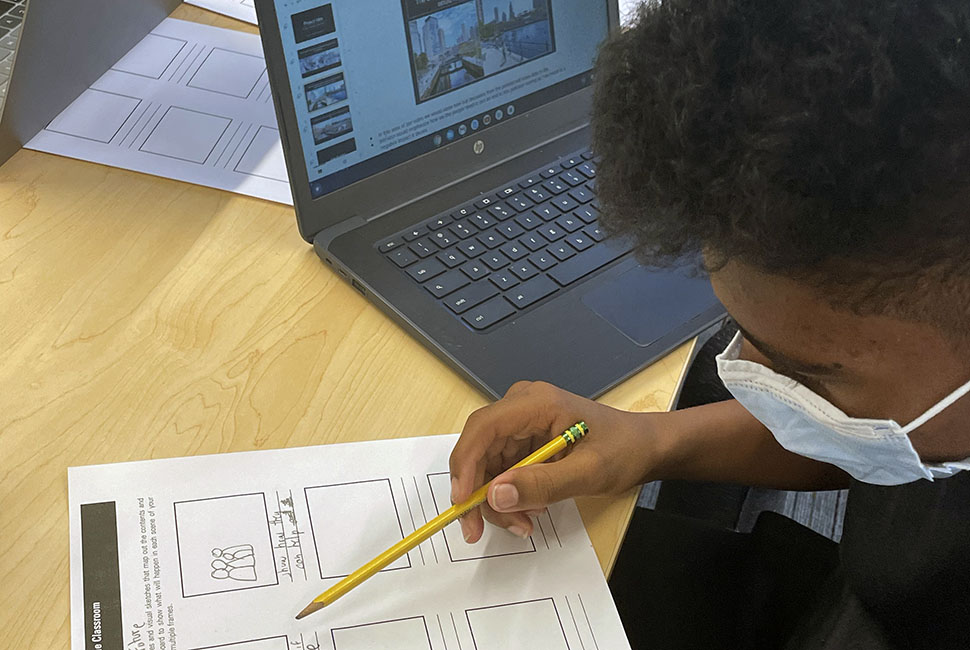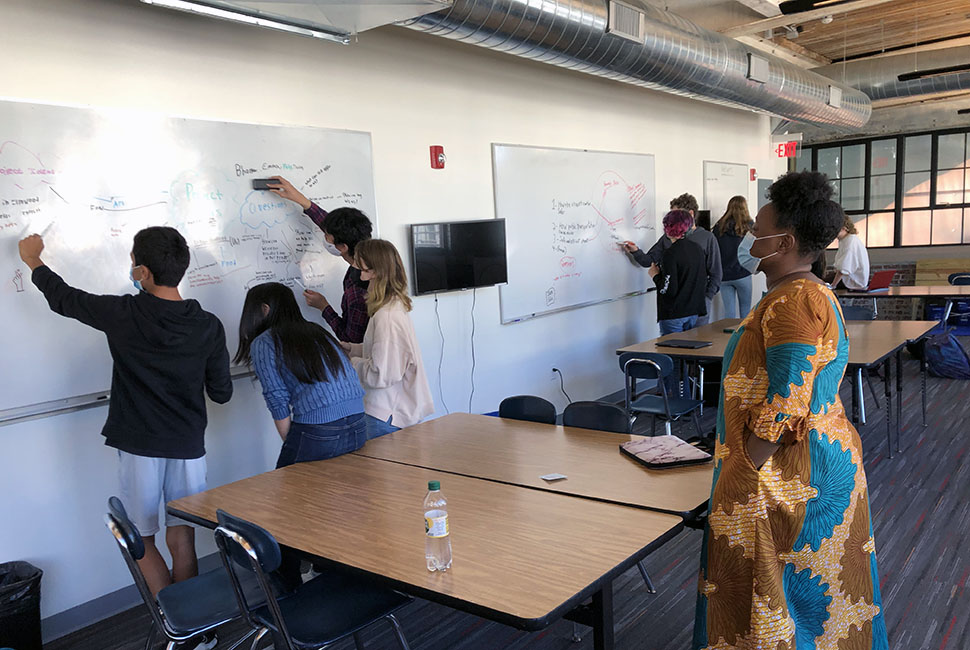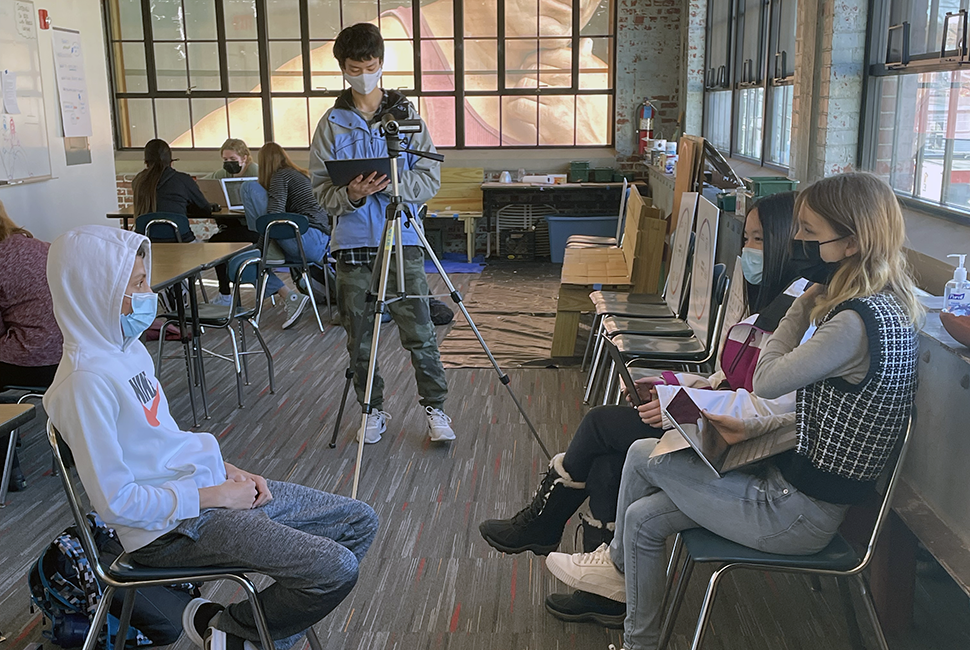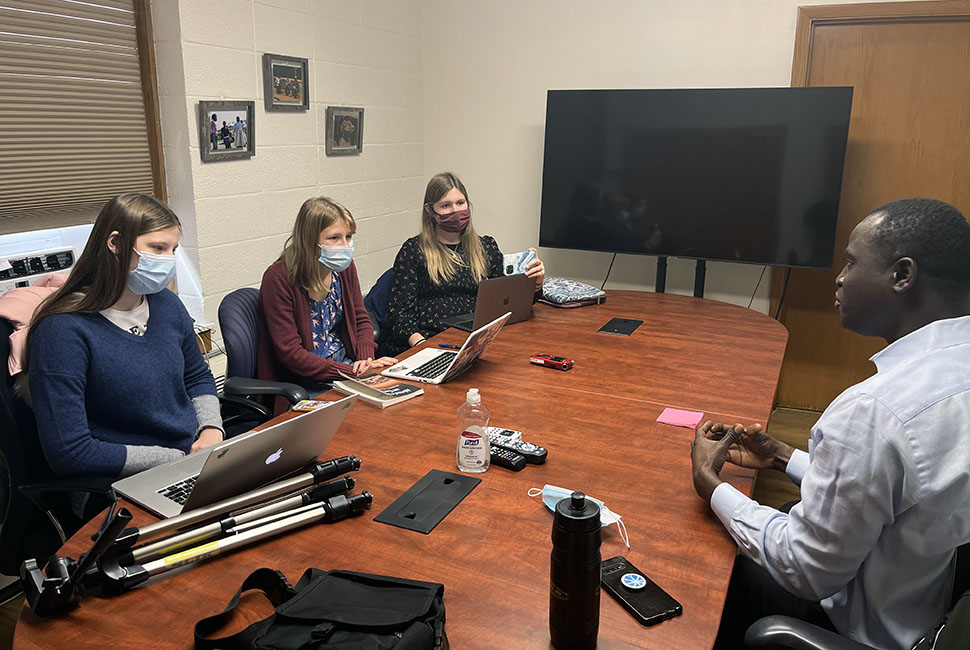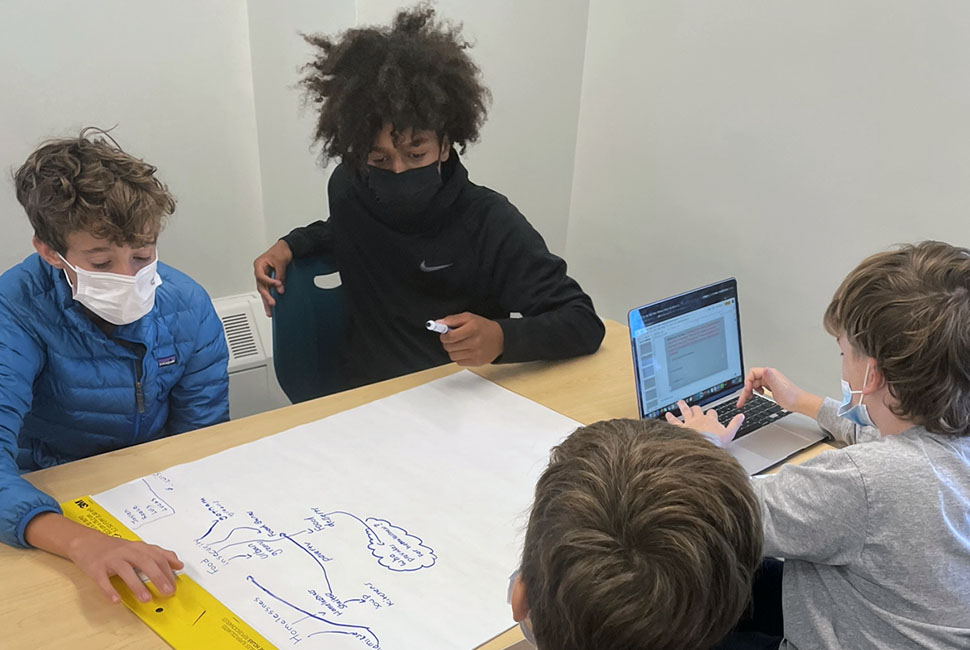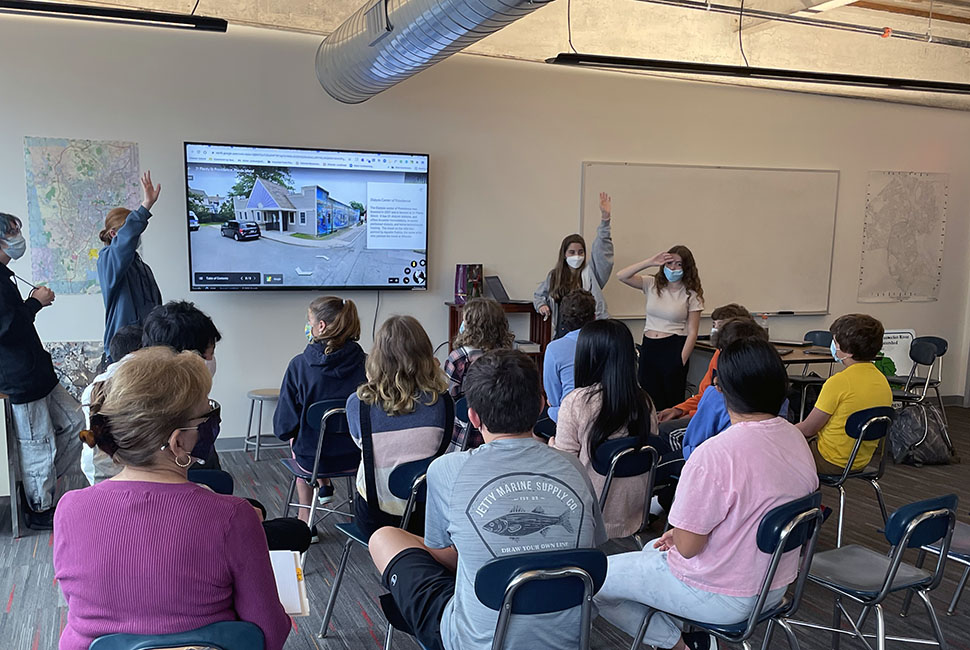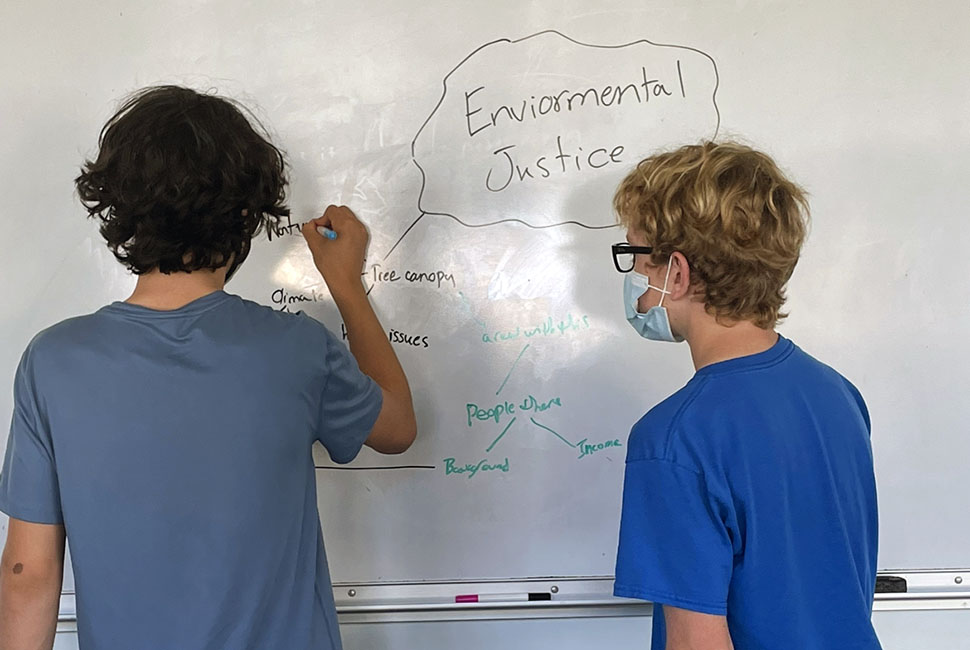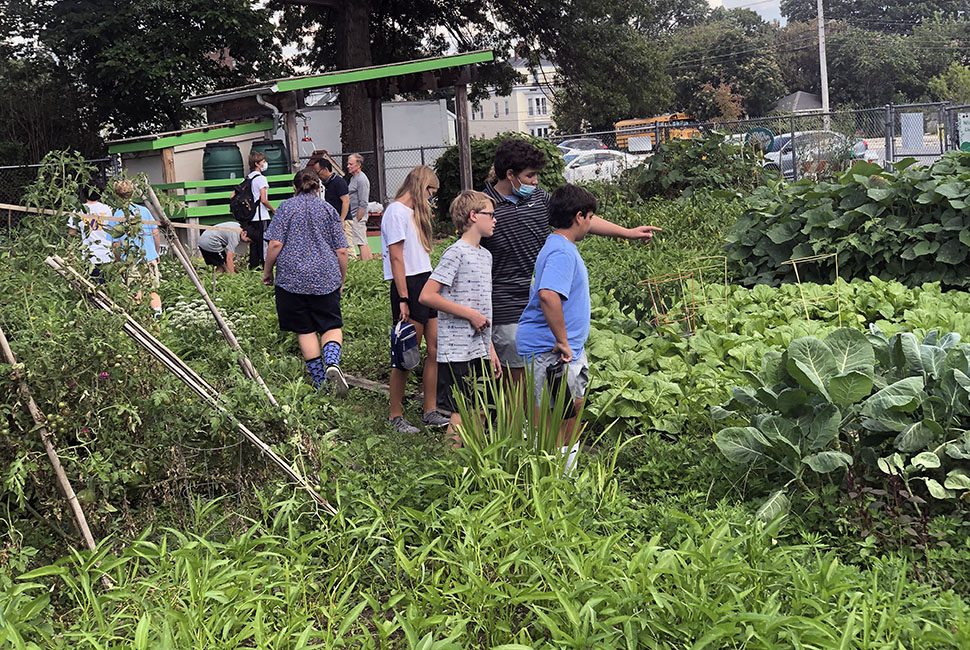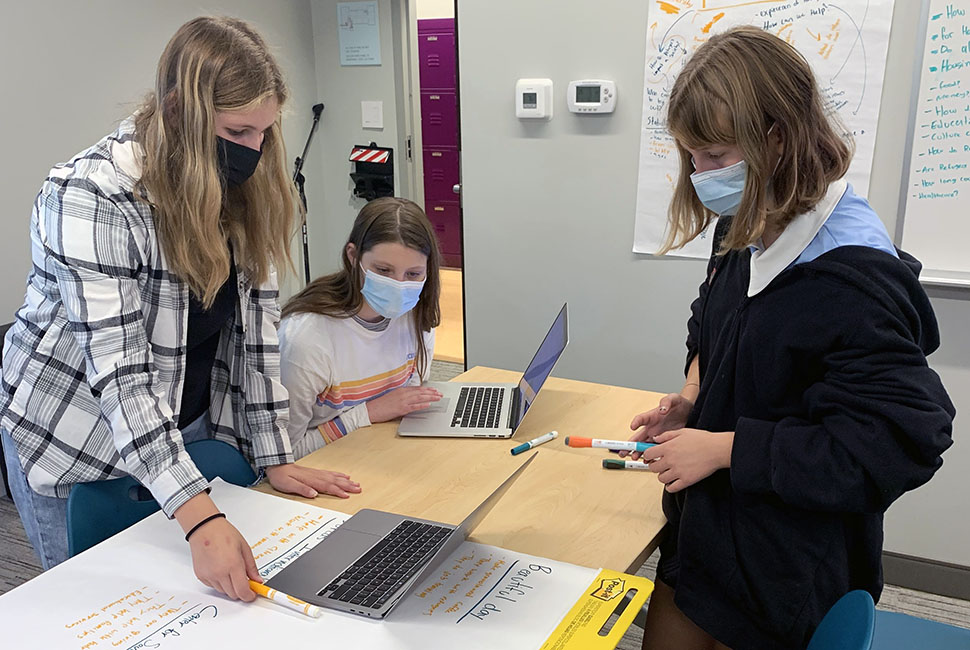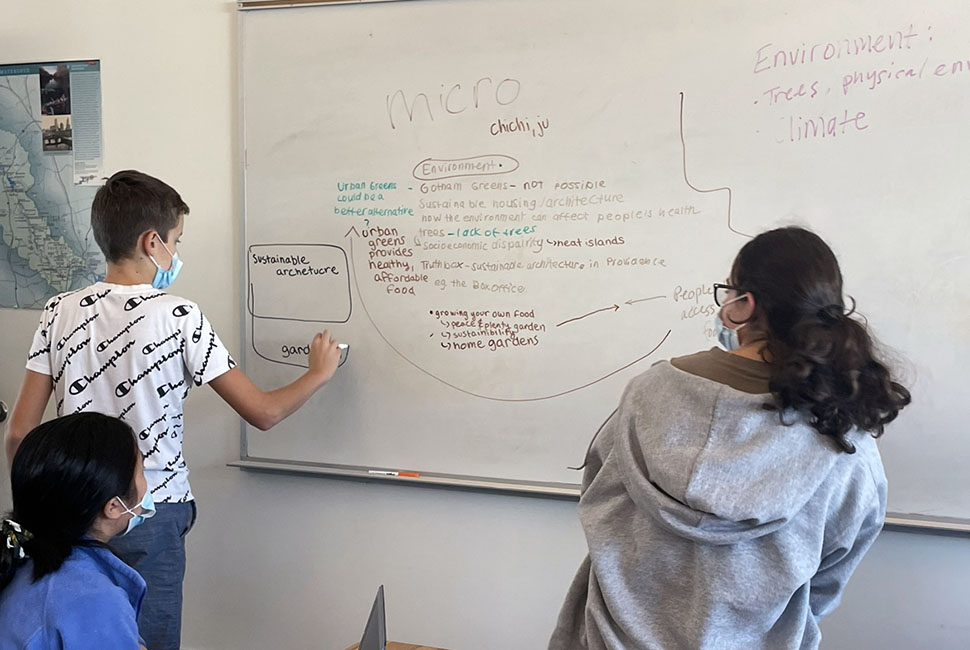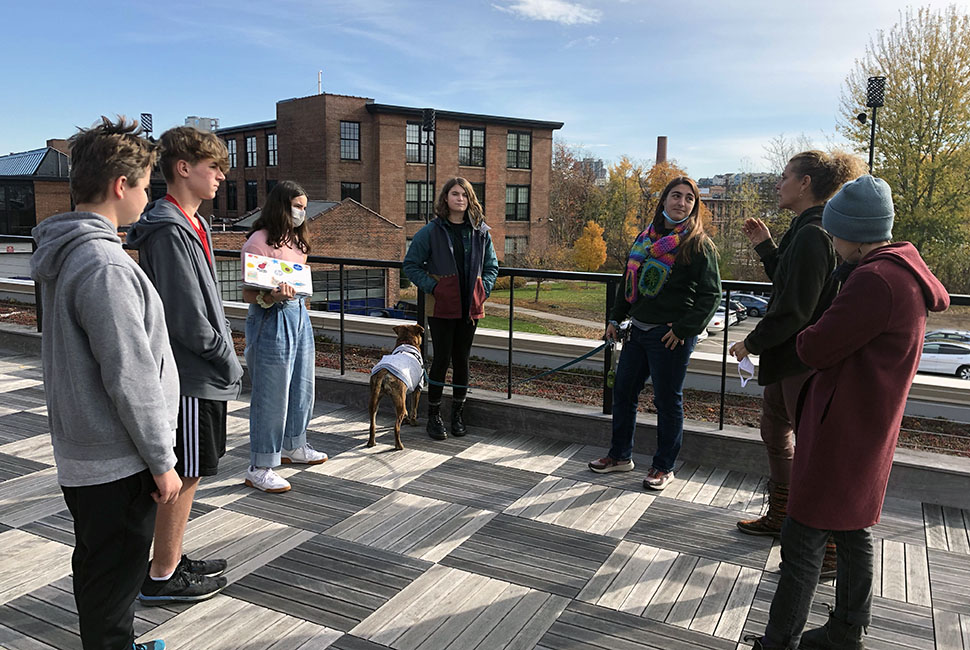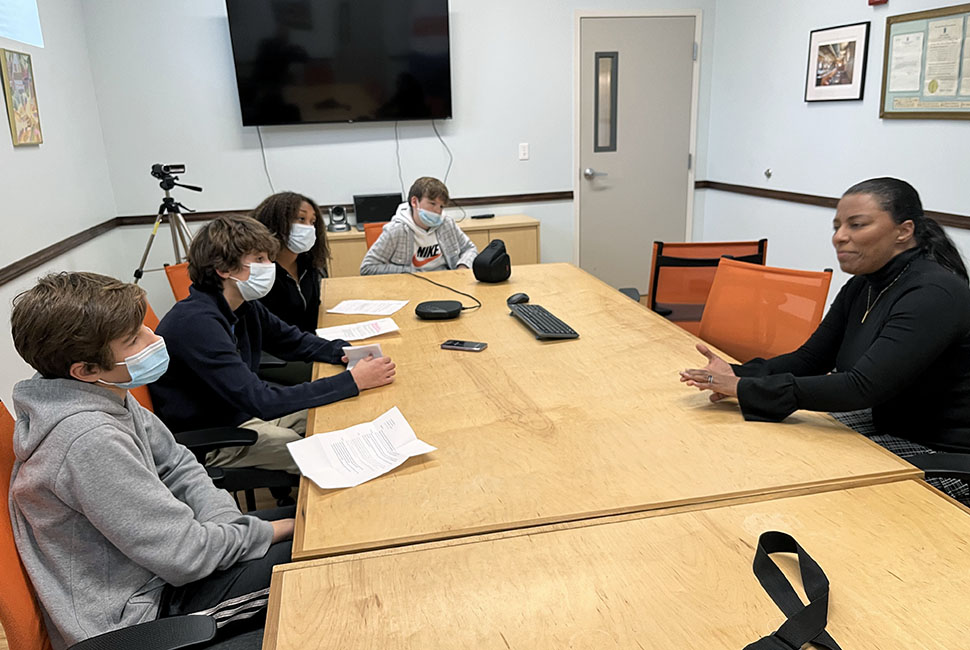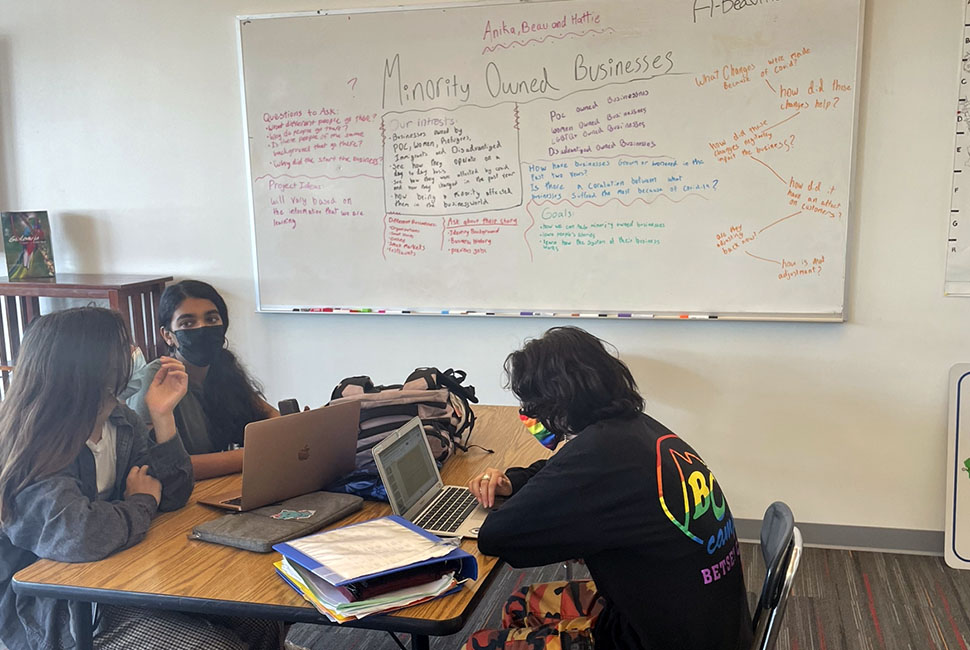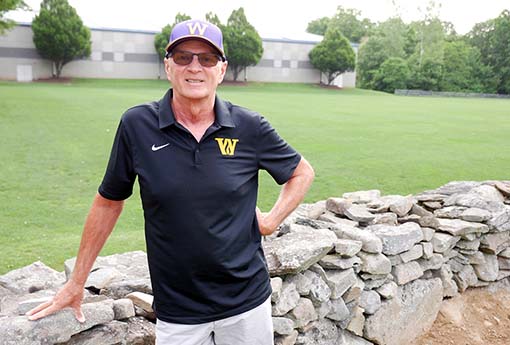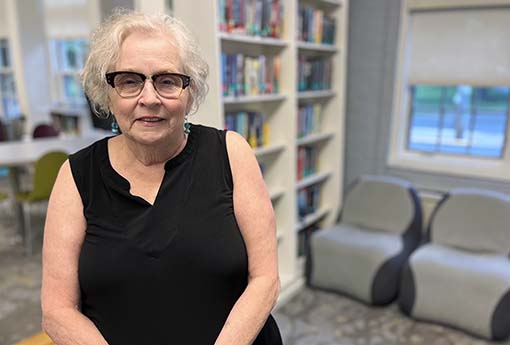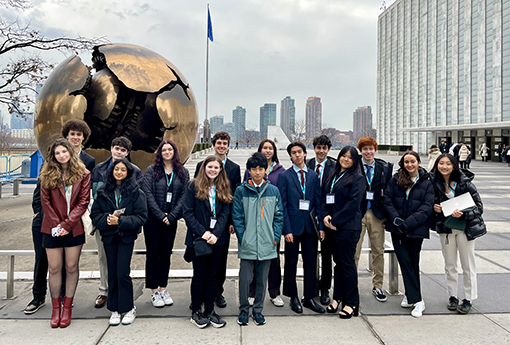
The Many Sides of Cityside
January 5, 2022
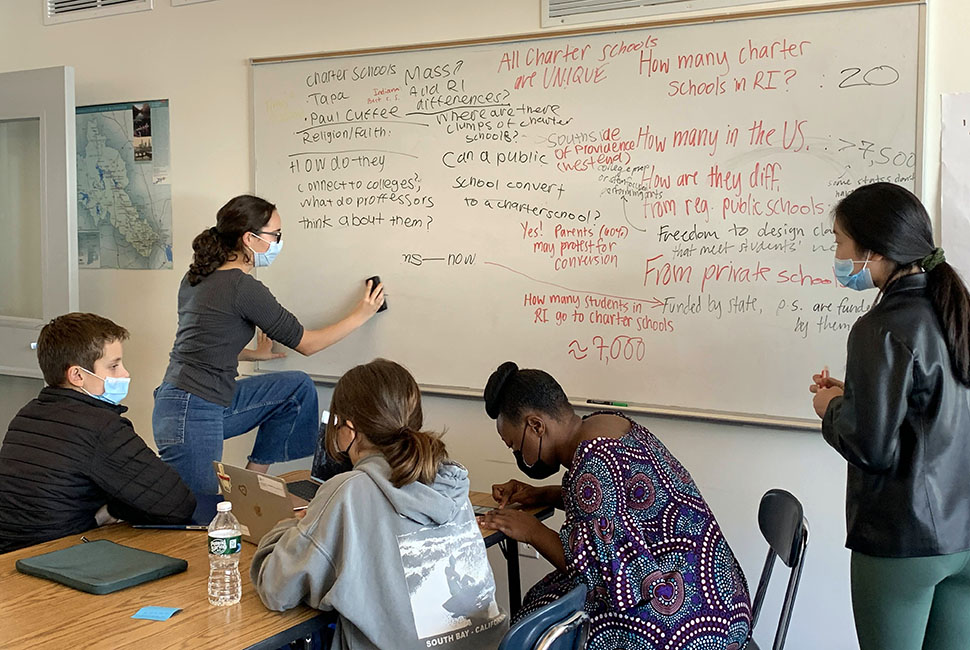
Wheeler 8th-graders engage in a year-long interdisciplinary experience embedded in the City of Providence. Through the Cityside program, students work with various NGOs, non-profit organizations, community groups, and branches of government on various projects that have a positive impact across Providence’s 25 neighborhoods and offer the students real-world opportunities to develop their inquiry and research skills. We will focus on some of those projects in upcoming stories, but in this first Q&A, we talk with Cityside Director Joe Baer, a veteran Wheeler 8th-grade History teacher and nonprofit founder with a background in small business and urban environments, about the program’s approach and goals.
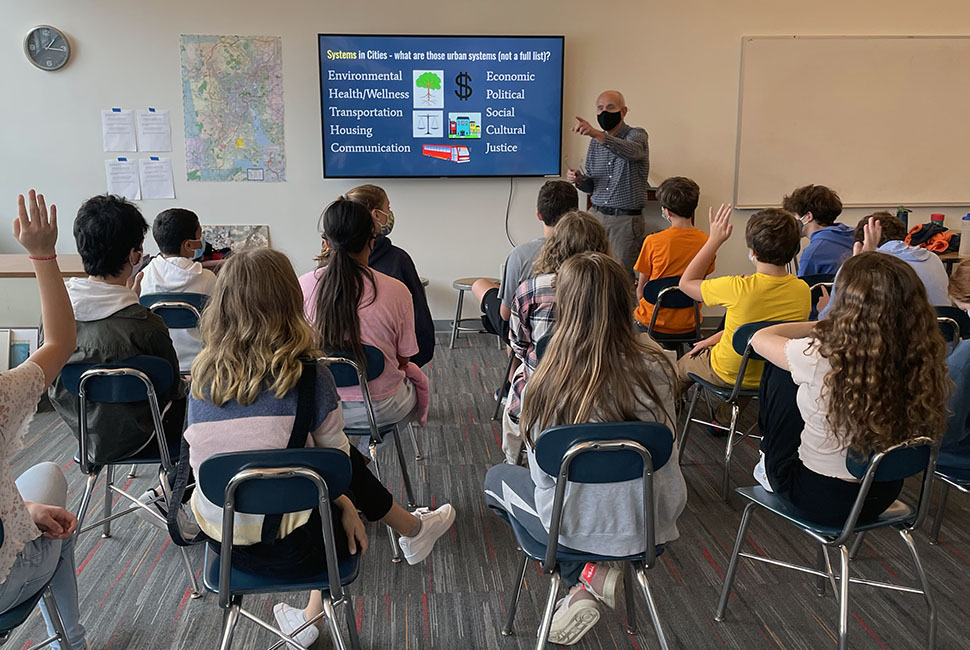
Q: What are some of the Cityside highlights for you so far this school year?
A: While a bit of a cliche, it is helping students grow. It is great to see the value of all their academic subjects as they apply math, English, history, science, technology, and research skills in real world situations, and I appreciate watching their understanding of our school’s diversity, equity, and inclusion work come to life as they experience greater Providence.
Cityside requires a high degree of collaboration between our students to identify common areas of interest for their work, solve problems, and fashion work plans. Group work is tricky for kids (and adults) so it is very rewarding to help them refine this skill which will serve them for life.
I love how our students learn to tell compelling stories about the people and places of our city with empathy and respect. It is exciting when kids start to intuitively ask “why is that there?” or “why is that the way it is?” when meeting new people or seeing new places. These seemingly simple questions open up so many possibilities for teaching and learning.
I am reminded every day just how fortunate I am to work with both my Cityside colleagues and many Wheeler faculty members. Their expertise and enthusiasm is so vital to our success and enriches my day. The work in our classrooms, DIB Lab, Library Learning Commons, Digital Production Studios, art rooms, and throughout Wheeler helps students build skills that translate into action. Our kids are so fortunate to have these resources and use them wisely.
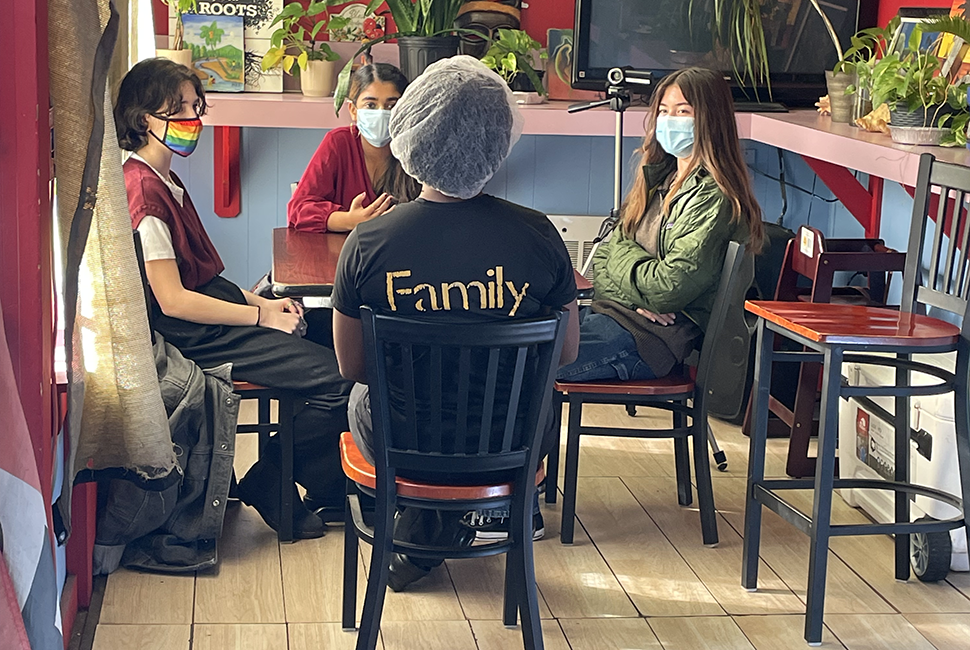
Q: There are more than a dozen Cityside projects underway this year, focused on topics ranging from housing insecurity, to public art, community libraries, refugees, small businesses, stormwater management, and public parks. How are community partners selected for the Cityside program?
A: I reach out to many organizations in advance of the school year to recruit partners I think will benefit our kids’ work. My hope is to forge rich relationships with our partners. To that end, we meet and correspond many times to fully understand each other’s mission, programming, and operations. There has to be a reciprocal benefit for any relationship to be sustainable and fair. Our partners are generous with their time and talent.
Our students will often identify potential partners from their research around a topic and then initiate contact. Additionally, an existing partner may refer us to a new organization. Sometimes an organization will contact me, asking if they can participate in Cityside. Collaborations are ever-evolving and change all the time. We have worked with some partnerships throughout our three years and also often work with a person or organization only once for a specific purpose (You can see a list of the organizations students are currently partnering with at the end of this story).
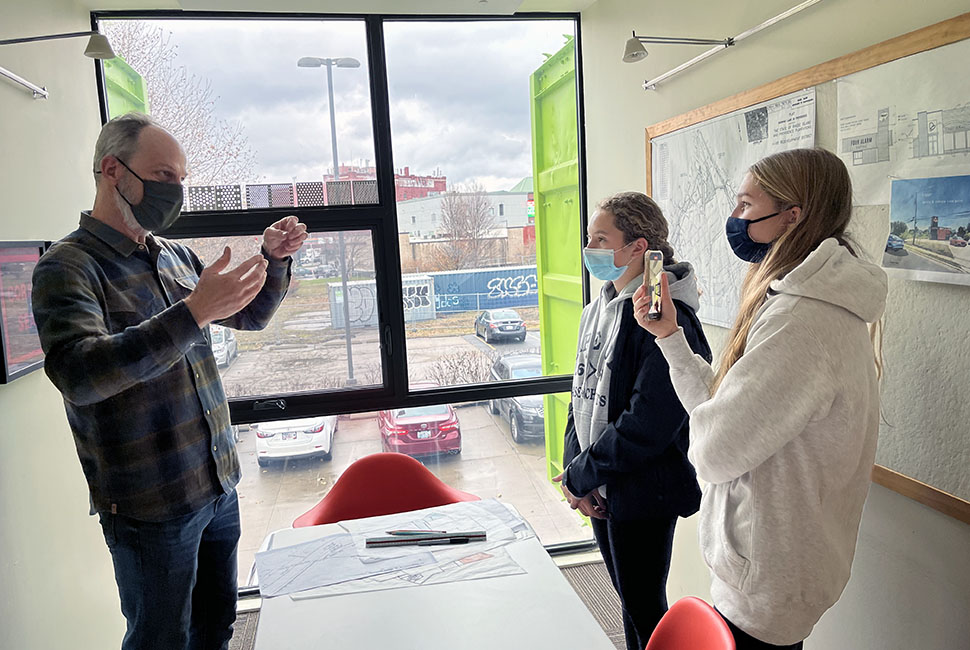
Q: While each partnership project is different, do they share an overall goal within the larger Cityside program?
A: Partnerships are a vital component of Cityside and align with Wheeler’s commitment to being “Within and a Part of the World,” and our students benefit from having many professionals from different fields to teach and mentor them. Cityside faculty teach kids how to communicate with and directly interact with adults who are not routinely part of their educational experience. While kids are typically and understandably a little nervous when first meeting with our partners, they always leave with excitement. This experience animates their learning.
All Cityside projects must produce an outcome or product that has merit for an organization or the larger community. One of the tenets of Cityside is that students produce authentic work for an authentic audience. Our partners are central to that experience.
Cityside endeavors to give students more agency for their learning than traditionally found in a classroom setting. All Cityside projects must be published or otherwise public facing, and this fuels student agency. By working with our partners, students quickly develop a sense of responsibility for the quality of the work, knowing they are accountable to an audience beyond the Wheeler campus.
With our home base in Providence’s Valley neighborhood and our consistent presence on the southside, west side and in downtown, our partners see us every week throughout the school year. Cityside is a Wheeler program that is in the community, as opposed to a field trip. This is critical to developing enduring partnerships and dynamic collaborations.
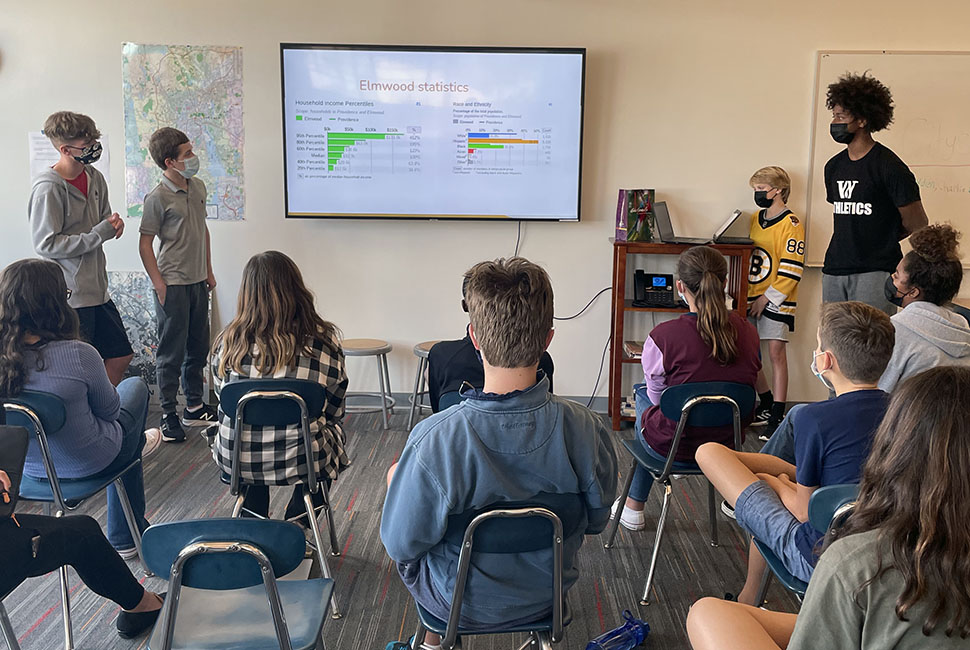
Q: As we begin the second half of the Cityside program, what is ahead for the Wheeler students and their community partners?
A: Students engage in the iterative process, and we ask kids to use what they have learned to guide their next steps. Students will be prototyping many of their ideas, taking a step back, changing course, and refining their projects until they are done. Our partners will be fact checking and provide feedback throughout the process. Many current projects will continue until the end of the year and others will be done sooner, allowing for a new project to start. As such, kids will form new partnerships.
A substantial number of students will contribute to a three-week show at AS220, which is one of the most prominent galleries in Providence. All our students will learn about the role of AS220 when they meet the gallery director and see the space, so this particular project will further their collective understanding of how an art gallery serves as a community hub with civic purpose.
One group is concurrently making public art for installation along Valley Street at Donigian Park and designing corresponding curriculum they will use to teach 4th-graders from the Paul Cuffee School this spring. There will be connections here for many Cityside students.
Finally, each group will present their Cityside work to their classmates.
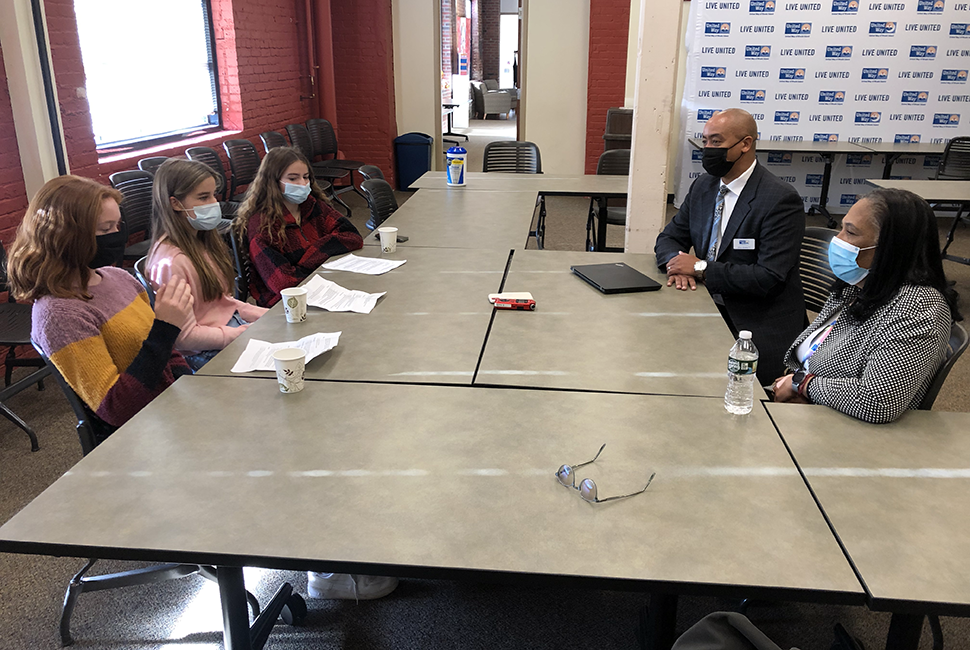
Q: Is there anything else about Cityside that you’d like to highlight?
A: Yes! Our space at the WaterFire Arts Center (WFAC) is more of a studio than a classroom. It encourages fluid movement between different activities. We also benefit from backstage access to art exhibits, television productions, and other events held there.
Cityside students spend a significant part of their time visiting sites, doing some general field work, or just having lunch at a neighborhood park. These sometimes small and subtle moments add up to help our kids reframe and expand their understanding of community and citizenship.
Cityside asks kids to use Providence as an inspiration and resource for their learning, while at the same time, requiring them to reciprocate. Regardless of their hometown, all our students are members of the Providence community by virtue of Wheeler and our students learn in many of the city’s 25 neighborhoods. A lot of this is new to them and most experience “productive struggle” where I believe some of the best learning occurs. So I’d like to give a shout out to my students for their intellect, resilience, and humor!
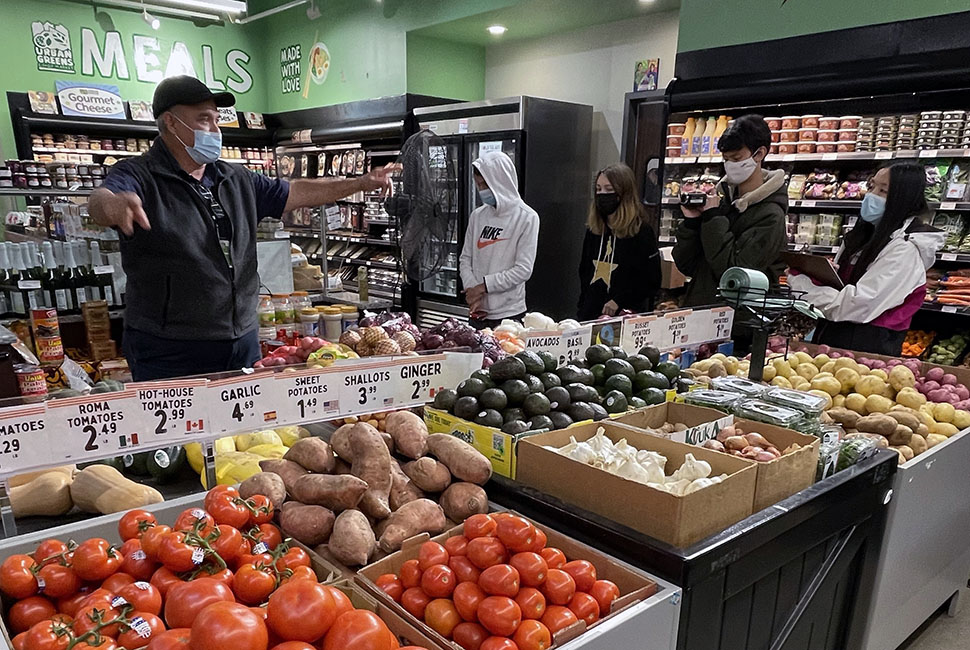
Cityside’s current community partnerships:
- Providence Department of Planning and Development, Responsible for many infrastructure projects and economic development (Bonnie Nickerson is the Director and a Wheeler parent)
- Providence Parks Department, Responsible for the maintenance and development of over 120 city parks as well as a lot of programming and special projects such as stormwater management (Wendy Nilsson is the Superintendent and a Wheeler parent)
- Crossroads, Frontline services around homelessness and housing insecurity
- One Neighborhood Builders, Builds housing to address homelessness and housing insecurity
- Housing works RI, Data and advocacy around homelessness and housing insecurity
- Federal Hill House, Provides an array of social services
- EcoRI, Environmental journalism
- Highlander Institute, Education reform
- Woonasquatucket Watershed Council, Environmental advocacy and education, improvements to public space, programming of public space
- AS220, Art galleries, art education, art studios, restaurant, artist residences
- Truth Box Architects, Sustainable architecture and design (Peter Case is the owner and a parent of two Wheeler alums)
- Garden of Eve, Local restaurant with a small business perspective
- The Family Cake, Local market and distributor, started by an immigrant
- The Refugee Dream Center, Post settlement support for refugees
- Beautiful Day, Job training for refugees
- Urban Greens, Food Co-op with public purpose
- Providence Streets Coalition, Advocates for safer streets and equitable use of transportation options
- United Way, Supports and strengthens many local non-profits and creates pathways for specific initiatives (Kyle Bennett is the Director of Policy and Engagement and a Wheeler Alumnus)
- Providence Community Library, Network of local libraries serving as a community hub for an array of services
There are also several organizations that are beginning partnerships with Cityside in January:
- Bacco, Restaurant with a powerful COVD-related story
- Providence Public Library, Cityside has a page on the COVD 19 archives
- The Avenue Concept, Creates public art, education
- Providence Parks Forestry Division, Tree health/planting, tree canopy
- Providence Neighborhood Planting Program, Tree health/planting, tree canopy
- Rhode Island League of Charter Schools, Advocates for charter schools
- Providence Office of Business and Development, Economic development
- WFAC, Continuing collaboration around the upcoming GAIA installation, for both Cityside students and students in other Wheeler grades
